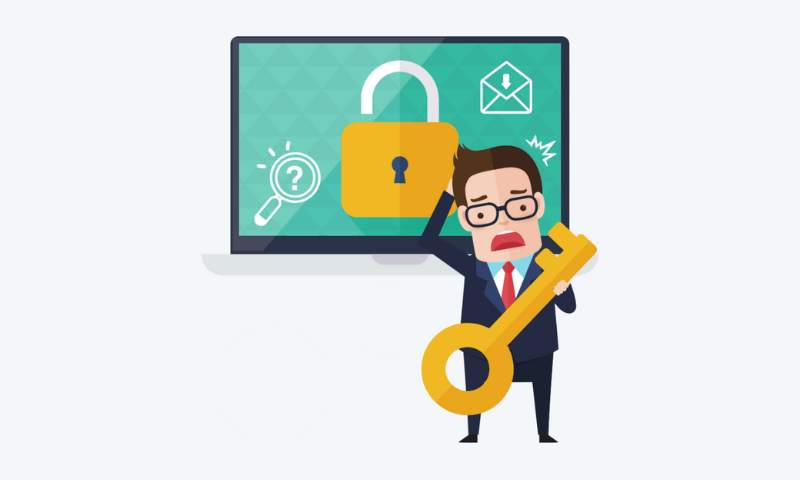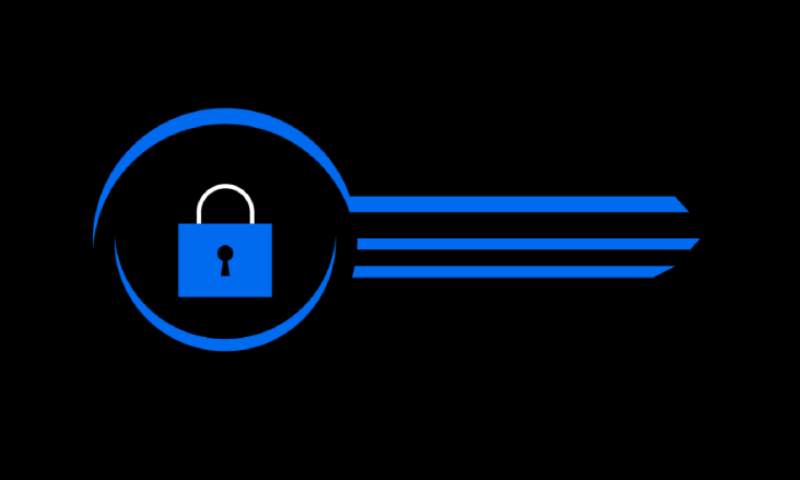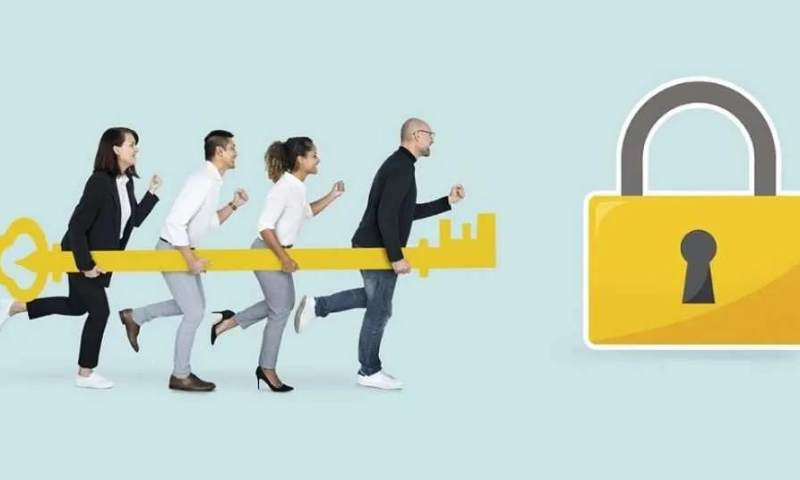Keep your crypto private keys safe 2024: it’s not just advice, it’s your financial lifeline. In a world where digital assets are as valuable as real gold, you need strategies that shield your crypto keys from cunning hackers and unforeseen mishaps. I’ve turned every stone to map out foolproof methods so you can sleep easy, knowing your digital wealth won’t vanish into thin air. Dive with me into the essentials of hardware wallets and multifactor authentication. Uncover how to back up those critical seed phrases and adopt cold storage solutions that leave thieves out in the cold. Don’t let phishing scams hook you or encrypting missteps expose your financial guts. Let’s ensure your cyber hygiene and compliance are so pristine, they’d make a hacker cry. Ready to become a fortress in 2024? Buckle up; it’s time to fortify your cryptocurrency’s future.
Enhancing Cryptocurrency Security in 2024
Implementing Cutting-edge Hardware Wallet Solutions
Protecting your crypto begins with a hardware wallet. These wallets store your private keys offline. They shield your keys from online threats. Always choose a wallet that has a reputation for being secure. Trezor and Ledger are two popular and trusted brands. They make hardware wallets that have strong track records. Feel confident using them to hold your digital wealth.
Using a hardware wallet is one of the best practices for private keys. The reason is simple. When your keys are offline, hackers can’t reach them. This means your crypto is safe even if your computer gets attacked. It’s like having a safe that only you can open. Remember to keep your wallet in a safe place too.
Many hardware wallets now support multiple cryptocurrencies. This is great if you hold different types of coins. Just one hardware wallet can secure them all. This makes it easier to manage your investments. Plus, it cuts down on clutter.
But always do safety checks before any transaction. Make sure to use the latest software on your hardware wallet. This keeps your crypto secure.
The Importance of Multifactor Authentication and Biometric Systems
Now let’s talk about multifactor authentication (MFA). MFA is key in the fight against unauthorized access. How does it work? It uses two or more ways to prove it’s really you. This can be something you know, like a password. It can also be something you have, like a code from your phone. Or it could be something you are, like your fingerprint.
Biometric security systems are getting more common. They use unique body features to secure your data. Fingerprints and face recognition are examples. They are hard to fake or steal. That’s why they’re powerful tools for safeguarding digital assets.
By combining hardware wallets with MFA and biometrics, you create a strong defense for your crypto. You won’t be able to stop all attacks. But these measures make it much harder for thieves to succeed.
Remember, as we move into 2024, we must adapt to new threats. Hackers always look for new ways to get at your coins. Stay updated with the latest cryptocurrency security measures. This will help you protect your investments.
To sum it up, hardware wallets and MFA are non-negotiable if you’re serious about crypto. They ensure that your private keys stay private. And they help you avoid the heartache of theft. Always keep up with the new ways to protect your coins. That way, you can enjoy the benefits of crypto without the worry.
Robust Key Management Practices for Crypto Enthusiasts
Mastering the Art of Backing Up Seed Phrases
Let’s talk about keeping your secret crypto keys safe. Your seed phrase is like a master key. It opens your crypto vault, so it must stay secret and safe. You might ask, “What’s the best way to back up my seed phrase?” Store it offline and make copies. This means writing it down on paper or using metal for extra safety from fire and water.
Keep copies in different places. Maybe one in your home safe, and another with a trusted family member. Every place must be secure. Remember, if someone finds your seed, they could steal your crypto.
At times, a digital backup may seem helpful. But ask yourself, is my computer or phone safe from hackers and viruses? Often, they are not. So, please, avoid storing your key on devices that touch the internet. Sticking to paper or metal and keeping it offline — that’s golden.
Evolving Cold Storage Techniques and Decentralized Options
Now let’s dive into cold storage. Cold storage keeps your keys offline, away from online threats like hackers and malware. Imagine it as a hidden treasure chest in a sunken ship, tough for thieves to find or reach. Many folks use hardware wallets for this — small devices designed to store your keys safely. These gadgets are made to be virus-proof and are easy to hide or lock away.
Some welcome new ideas come from decentralized storage options. Here, your key gets split into pieces and lives on different devices across a network. It’s like a puzzle. To steal your crypto, a bad guy would have to find all the pieces, which is really hard to do.
What about those privacy-focused wallets? They help keep your money moves under wraps. These wallets don’t share your info with every Tom, Dick, and Harry out there. It’s like whispering instead of shouting — much safer when you don’t want nosy folks in your business.
You may worry about losing your hardware wallet or forgetting where your key is. Have a backup plan! This could mean having a rescue kit with instructions for your loved ones. It could also mean using a recovery service if things go south. It’s like having a spare tire for your car — you hope never to use it, but it’s a lifesaver when you do.
If I were to tell you one critical thing, it would be this: Stay sharp on the latest ways to keep your crypto keys safe. It’s an ever-changing world, with new security measures popping up. Take the time to learn and apply what works best.
Playing it safe with your crypto keys isn’t just smart; it’s a must. Use these tips to lock down your digital wealth with confidence. Your future self will thank you for it.
Staying One Step Ahead of Crypto Threats
Recognizing and Avoiding Phishing Scams in Crypto
To dodge crypto phishing scams, don’t click unknown links. Scammers want your private keys. They trick you with fake websites that look like real crypto exchanges or wallet services. Before entering any private information, check the website address carefully. Make sure it matches the official site you want to visit. Also, look for secure website signs like a padlock icon next to the URL.
Incorporating Advanced Encryption for Key Safety
Use strong encryption to protect your keys. This means turning your private keys into a secret code. Only someone with the right password can decode it. Pick a password that’s hard to guess. Use a mix of letters, numbers, and symbols. Don’t use obvious things like your birthdate or “password” as your password.
To keep your digital assets safe, you need the right tools and knowledge. Start with the basics. Learn the best methods for taking care of your private keys and how to store your cryptocurrency safely. Use reliable hardware wallets for keeping your assets offline. This is safer than keeping them on a computer that can connect to the internet.
Backup your seed phrases. These are the special words that can restore your wallet if needed. Write them down and store them in a secure place. Use cold storage methods, like paper or hardware wallets. These let you keep your cryptocurrency offline. Doing so shields it from online hackers.
Turn on multifactor authentication wherever possible. This asks for more than one proof of who you are before letting you into your account. Use biometric security, like fingerprints or face scans, if you can. This adds another layer of protection.
Use privacy-focused wallets. These wallets don’t share your transaction details with anyone. They help keep your cryptocurrency business just that—yours.
Keep an eye out for words like “decentralized storage options”. These are places you can store digital assets not controlled by one company or person. This spreads risk and reduces chances of theft.
Before doing any transaction, make sure to run safety checks. Updated security protocols guide you on how to do this. They’re the latest methods to ensure everything’s secure. Use trusted wallet providers and crypto exchanges, as they follow strict safety rules.
Remember to be careful with where and how you use the internet when dealing with crypto. Use a VPN to mask your IP address. This makes it harder for hackers to target you. Always keep your internet security software current to protect against malware and viruses.
Knowing what to do if keys are compromised is critical. Have a recovery plan ready, and know how to dispose of compromised keys safely.
By staying alert and informed about these cryptocurrency security measures, you can help make sure that in 2024 and beyond, your digital wealth remains safe in your hands. It all comes down to being proactive and mindful in guarding your precious digital currencies.
Maintaining Rigorous Cyber Hygiene and Compliance
Best Practices for Conducting Secure Blockchain Transactions
When you deal with cryptocurrency, think of your private keys as the keys to your online bank vault. Best practices for private keys ensure that you alone can access your digital wealth. Start by using a hardware wallet, which stores your keys offline, away from hackers.
Always double-check the recipient’s address before confirming a transaction. Mistakes here can be costly. Use trusted wallet providers and trusted crypto exchanges for all your deals. They use systems that make your transactions more secure.
Next, enable two-factor authentication (2FA); it’s an extra step, but it guards against unauthorized access. Along with 2FA, multifactor authentication adds even more security layers. These measures may require a code from your phone or a fingerprint.
Another smart move is to use a VPN for crypto activities. A VPN hides your online actions, so spying eyes can’t track your crypto dealings. Also, always keep your internet security software up to date. It blocks viruses and spyware that can steal your keys.
Keeping Abreast of Updated Security Protocols and Regulatory Requirements
Stay informed about updated security protocols and regulatory compliance concerning cryptographic keys. Rules on how to handle private keys can change. You want to make sure you’re always following the law.
Create a recovery plan for keys in case you lose access to your wallet. This plan should include where you’ve safely stored your backup, like a paper wallet or cold storage techniques, and who might be able to help you recover it.
Know that using decentralized storage options can spread your risk. If one part fails, you may still have other backups. Privacy-focused wallets offer extra protection. They help keep your transactions and balance hidden from prying eyes.
Finally, teach yourself to spot and avoid phishing scams. These scams trick you into giving away your keys. Learn the signs of a scam so you can steer clear. Remember, your crypto is only as safe as your practices. So make sure you conduct secure transactions and follow the law to protect your digital wealth in 2024.
In this post, we dived deep into making your crypto safe in 2024. We talked about hi-tech hardware wallets and why you need lots of locks – like biometric systems and more. Remember, losing your seed phrase is like losing cash. So back it up! Keep your coins cold and out of reach, but know decentralized options too.
Crooks are smart, but you can be smarter. Spot those phishing tricks and beef up your encryption. The key is to stay sharp – know the scams and keep your guard up.
It’s not just about tech; it’s about habits. Keep your blockchain deals tight and follow those rules. Crypto shifts fast, regulations too. Stay updated.
To wrap it up, staying safe with crypto means learning, updating, and always being ready. Keep these tips in mind, and you’re good to go. Stay safe and trade smart!
Q&A :
How can you ensure the safety of your crypto private keys in 2024?
As technology advances, so do the methods to secure your crypto private keys. It’s essential to use updated software wallets and keep your hardware wallets in secure, offline locations. Regularly updating your security practices and using multi-factor authentication can also keep your keys out of unauthorized hands. Always back up your private keys in multiple safe places.
What are the best practices for storing crypto private keys securely?
To store crypto private keys securely, you should consider the following best practices:
- Use hardware wallets for large amounts of cryptocurrency.
- Implement multi-signature wallets for additional security.
- Keep backups in multiple secure, physical locations.
- Never share your private keys or seed phrase with anyone.
- Encrypt your digital backups with strong passwords.
Are hardware wallets the safest option to keep your crypto private keys private?
Hardware wallets are widely considered one of the safest options for keeping your crypto private keys private, as they store the keys offline and are less susceptible to hacking. However, it’s essential to purchase them from reputable manufacturers and ensure that you never share the recovery seed or physical device with anyone.
Can multi-factor authentication help protect my crypto private keys?
Yes, multi-factor authentication (MFA) adds an extra layer of security to your digital wallets and accounts, making it much harder for unauthorized individuals to access your crypto assets. MFA typically involves something you know (a password or PIN), something you have (a hardware token or smartphone), and sometimes something you are (biometrics).
What should I never do with my crypto private keys to maintain high security?
To maintain high security for your crypto private keys, you should never:
- Store them unencrypted on cloud services or online storage.
- Share them via email, messaging apps, or social media.
- Enter them on suspicious or unverified websites.
- Leave them in plain sight or in easily accessible locations.
- Forget to keep your wallet software and associated apps up to date.






